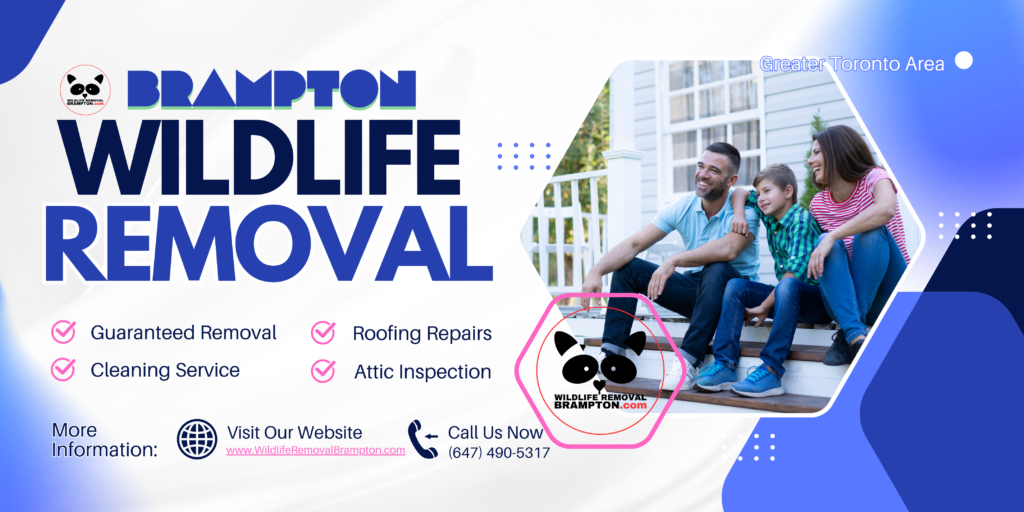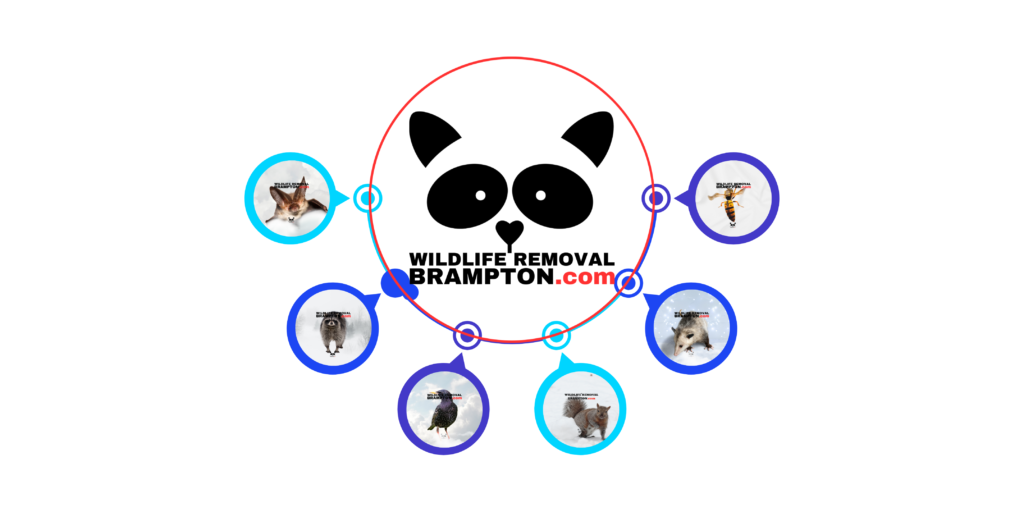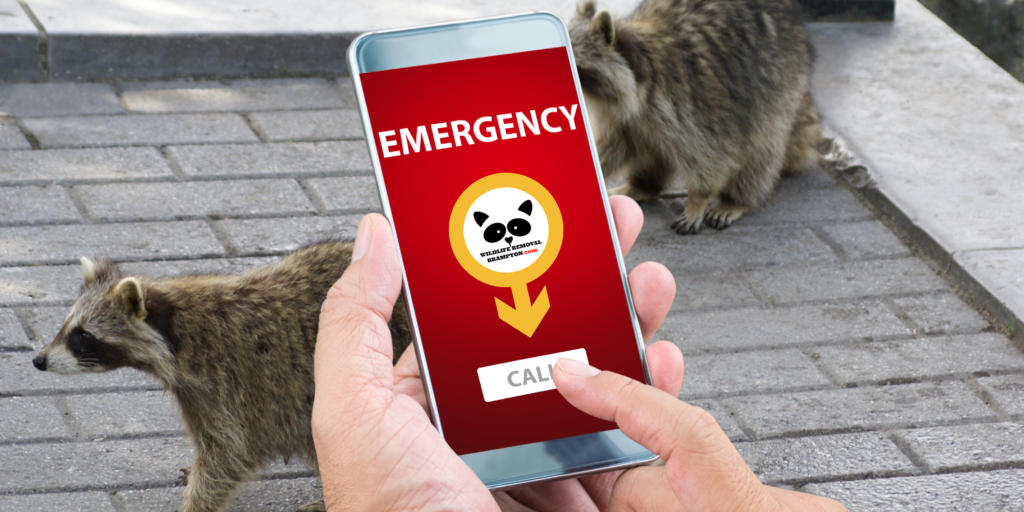Introduction
Raccoons are everywhere in Brampton, the population of this species is escalating. These wild animals go about rummaging through your trash, nesting in attics, or climbing trees for food. While they seem harmless, raccoons can be deadly to humans and pets as carriers of rabies and other diseases. Their raccoon feces, raccoon urine, and fur can spread disease, and if they feel threatened, they can get aggressive. These nocturnal creatures are omnivores, they eat a lot of things, plants and other wildlife, like fish, frogs and birds, so they play a role in the bigger ecosystem. Knowing the dangers of raccoons and how to prevent them can help homeowners stay safe. Raccoons are dangerous not only because they can carry rabies but also due to their aggressive behaviour and the health risks posed by their waste products.
Health Risks of Raccoons
Diseases Spread by Raccoon Feces and Pee
Are raccoons dangerous? Yes, because of the diseases they can spread, as their droppings in your attic or yard can carry parasites like raccoon roundworm, which spreads through roundworm eggs and can cause serious infections in humans and pets. Raccoon urine is another concern as it can spread leptospirosis, a bacterial infection that can cause severe flu-like symptoms. Contact with infected or contaminated areas can also expose you to salmonella, another health risk.
Can Raccoons Carry Rabies?
Raccoons are one of the wild animals that can carry rabies, which is transmitted through bites or scratches. A rabid raccoon may act erratic, aggressive or disoriented. If infected they become a danger to humans, small dogs, cats and other pets. Avoid contact with a potentially rabid raccoon and treat any bites or scratches immediately. If you suspect you have aggressive raccoons on your property, avoid them, keep your pets safe, and contact animal control as this behaviour and their ability to carry diseases is a big risk to humans and pets.
Raccoons Near Food Sources
Raccoons are very adaptable and will go for food in trash cans, pet food bowls and bird feeders. As omnivores they eat a lot of things, plants and other wildlife, like fish, frogs and birds, so they impact the bigger ecosystem. Their presence near these areas increases the risk of contamination as they can leave behind poop, pee and fur. If raccoons find an easy food source they will come back, so it’s important to secure garbage and remove attractants from your yard.

Are Raccoons Bad for My Property?
Homes and Yards
Raccoons can damage homes by tearing through roofs, walls and crawl spaces for shelter. Their sharp claws can rip through shingles, fascia boards and other openings to get into attics or sheds. Once inside, they build nests and leave behind raccoon droppings, raccoon urine, and fur that can cause foul odors and serious health risks.
Pets and Other Animals
Raccoons are opportunistic feeders and will attack small animals like rabbits, fish in backyard ponds or even small pets if food is scarce. They interact with other wildlife like fish, frogs and birds in their search for food, so they play a role in the bigger ecosystem. Their sharp teeth and claws can harm defenseless animals. In some cases they can also spread parasites and bacterial infections to household pets making them sick.
How to Prevent Raccoon Problems in Brampton
Secure Your Home and Yard
The best course of action is to prevent raccoons by securing entry points around your house, attics, sheds and crawl spaces. Installing chimney caps and sealing off potential openings can stop raccoons from making nests inside. Keeping trash cans tightly sealed and removing pet food from outdoor areas can deter raccoons from coming back.
Signs of a Raccoon Infestation
Signs of a raccoon problem include overturned trash, missing pet food and torn up yards. If raccoons are in your attic or shed you may hear scratching noises at night or smell a strong odor from their poop. Taking action early can prevent further damage and health risks.
What to Do as a Homeowner
If you suspect raccoons are on your property, contacting a professional wildlife removal service is the safest option. A trapped raccoon can get aggressive and trying to remove it without proper precautions can result in bites or exposure to diseases. If a pet has come into contact with raccoon poop or pee, you should consult a vet immediately.
Conclusion
Raccoons are part of Brampton’s wildlife, but if they get into your home, they can be a big risk to health and property due to their raccoon poop, raccoon urine, and aggressive behaviour. Their poop, pee and fur carry diseases and they can get aggressive if they’re cornered. By taking precautions like securing food sources and blocking entry points you can reduce raccoon problems and keep your family and pets safe.




